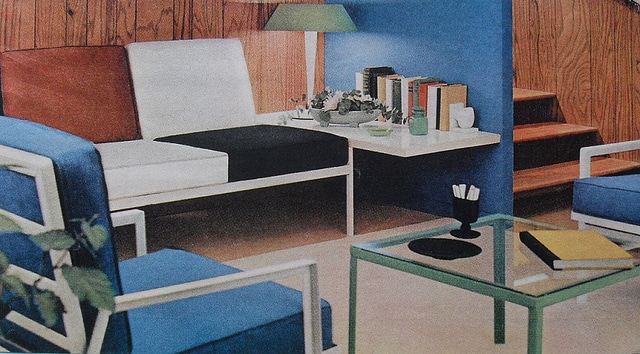Change Your Wardrobe and Frame Of Mind with the Concepts of Minimalism
Change Your Wardrobe and Frame Of Mind with the Concepts of Minimalism
Blog Article
Comprehending Minimalism: Methods for Minimizing Mess and Enhancing Quality in Everyday Living
Minimalism is progressively recognized as a feasible approach to improving clarity and focus in today's chaotic globe. By systematically reviewing our belongings and focusing on intentionality, we can create areas that not just reflect our worths but additionally promote mental wellness.
Defining Minimalism and Its Benefits
Specifying minimalism entails comprehending it as a lifestyle option that stresses simplicity and intentionality in both physical possessions and day-to-day routines. At its core, minimalism urges individuals to prioritize what absolutely matters, enabling for a more meaningful and focused presence. By stripping away the non-essential, minimalism welcomes people to engage deeply with their experiences and surroundings.
The advantages of adopting a minimal strategy are diverse. To start with, it promotes mental quality, as minimizing clutter in one's environment can result in lowered distractions and anxiety. When surrounded by fewer belongings, people usually report boosted focus and enhanced productivity. Second of all, minimalism promotes economic flexibility; by prioritizing requirements over wants, people can make more educated getting decisions, causing possible cost savings and minimized debt. In addition, a minimalist lifestyle can produce emotional advantages, as it encourages people to grow gratefulness for what they have instead of yearning for a lot more.
Inevitably, minimalism is not merely concerning worldly decrease however involves an alternative shift in perspective, fostering a life defined by gratification, balance, and function. Accepting this way of life can lead to extensive adjustments in how people engage and view with the world around them.
Examining Your Current Mess
Clutter usually shows up as an overwhelming build-up of things that no longer offer a purpose, developing a barrier to accomplishing a minimalist way of living. Take note of details groups of things, such as clothing, books, or kitchenware, as this will certainly assist you comprehend the range of the clutter.

Additionally, think about the frequency of use for each product. If something has actually not served a function in the previous year, it may be a candidate for removal. This evaluation will not just clarify your partnership with your properties however will additionally set the foundation for reliable decluttering in the future. Eventually, recognizing your current mess is an essential step towards accepting minimalism and enhancing quality in your day-to-day living.

Practical Decluttering Strategies
Having actually analyzed your present mess, the following step is to execute sensible decluttering techniques that facilitate an even more arranged living space. Minimalism. One effective approach is the "Four-Box" strategy, where you designate 4 boxes classified: keep, contribute, garbage, and relocate. This method urges quick decision-making and guarantees items are classified appropriately
One more strategy is the "One in, One out" regulation, which states that for every single brand-new thing obtained, an existing thing must be gotten rid of. This principle aids maintain balance and prevents build-up in time. Furthermore, additional reading think about the "30-Day Minimalism Game," where you get rid of one product on the initial day, two on the second, etc, cumulatively fostering a feeling of accomplishment.
For those that deal with emotional attachments to belongings, the "Nostalgic Value" technique can be valuable. Limit on your own to a specific number of cherished things, permitting you to value their relevance without frustrating your room. Lastly, develop a normal decluttering routine, whether monthly or seasonally, to preserve a clutter-free setting. By using these techniques, you can develop a much more peaceful and reliable space, inevitably enhancing clearness in your everyday life.
Producing Deliberate Areas
Producing willful rooms involves a thoughtful technique to just how we style and arrange our settings, making certain each area offers a particular purpose and shows our values. This practice is important in growing a sense of clearness and purpose in our every day lives. By critically assessing the function of each room, we can get rid of distractions and boost our general health.
To produce intentional spaces, start by recognizing the primary activities that will certainly take place in each area. A home workplace must be made to promote efficiency, including components such as adequate illumination, comfortable furniture, and very little disturbances. On the other hand, a relaxation area ought to promote peace, including soothing shades and comfortable seating.
Furthermore, think about the psychological impact of your environments (Minimalism). Integrating personal items that resonate with your values, such as art work or plants, can enhance the link to your room. On a regular basis review these settings to guarantee they proceed to offer their designated function as your requirements evolve
Ultimately, developing deliberate spaces has to do with making aware choices that straighten with your way of life, promoting harmony and performance in your living and working atmospheres.
Preserving a Minimalist State Of Mind
Accepting a minimalist way of thinking requires recurring representation and intentionality in our navigate here ideas and actions. This method involves cultivating understanding of our top priorities and worths, allowing us to filter diversions and concentrate on what really matters. To preserve this way of thinking, normal self-assessment is important. Reserve time to review your commitments, possessions, and also electronic web content, ensuring they straighten with your core principles.
This change in viewpoint encourages recognition for simpleness, improving total health. Including mindfulness techniques, such as reflection or journaling, can even more reinforce a minimal attitude by promoting clarity and minimizing mental clutter.
Additionally, establish borders to safeguard your time and energy. Learn to claim no to non-essential responsibilities and interruptions that do not add to your personal growth. Border on your own with like-minded people that support your minimalist journey, as shared values can enhance motivation and accountability.
Final Thought
In final thought, welcoming minimalism offers significant advantages, consisting of minimized clutter and boosted clarity in daily life. The concepts of minimalism serve as beneficial tools for cultivating an environment that sustains personal growth and well-being.

Furthermore, take into consideration the "30-Day Minimalism Game," where you get rid of one thing on the initial day, 2 on the second, and so forth, cumulatively promoting a sense of achievement.
In conclusion, welcoming minimalism uses significant benefits, More about the author including lowered mess and improved quality in everyday life.
Report this page